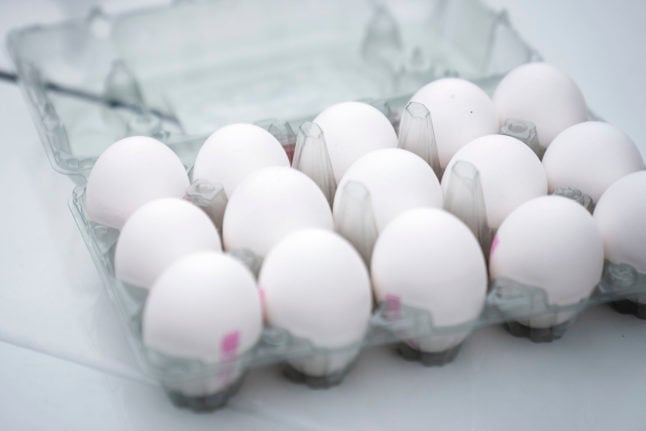In a statement, the Ministry of Food, Agriculture and Fisheries said that is would ban new cage egg farms from next year.
A full ban will come into place following a 12-year transitional period to “ensure proper conversion of production”, the ministry said.
“We wanted to phase out cage eggs as soon as possible. But we have a genuine responsibility to producers of cage eggs,” the agriculture minister, Rasmus Prehn, told news wire Ritzau.
The 12-year transition will avoid instances of expropriation by giving farmers time to fund and make the switch, according to Prehn.
Supermarket Lidl chose to remove cage eggs from its shelves as long ago as 2015, according to broadcaster DR. Other supermarket chains including Coop and Dansk Supermarked have since followed that decision, meaning most supermarkets in Denmark no longer stock eggs from hens in cages.
The EU banned battery cages in 2012, but hens can still be kept in larger cages, termed “enriched” or “furnished” cages, for the production of eggs, in line with the EU directive that banned battery production.
Production of cage eggs in Denmark has fallen from 61 percent of total egg production in 2010 to 13 percent in 2021, according to DR.
That is an underestimate in comparison to the ministry press release, which states that seven producers of cage eggs in Denmark were responsible for 17 percent of Denmark’s total egg production last year.
While most supermarkets have stopped selling cage eggs, they are still often used by restaurants, catering businesses, food factories and pharmaceutical companies, the ministry states.
“Cage hens live – as the name suggests – their whole lives in small cages with limited space to flap their wings. Denmark is in many ways a forefront country within agriculture, and this must also be the case when it comes to animal welfare,” Prehn said in the press statement.



 Please whitelist us to continue reading.
Please whitelist us to continue reading.
Member comments